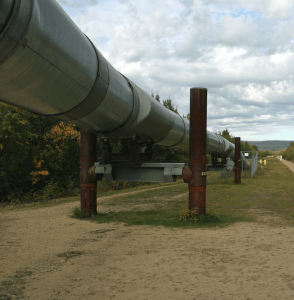National Energy Board – Fix it or Scrap it?
Should the National Energy Board Act be amended to repair the damage that the previous federal government wrought in 2012? Or should Parliament just scrap the NEB and rethink how pipelines and tanker projects are regulated—especially given the expected decarbonization of the global economy?
The National Energy Board was created in 1959 in the wake of the Parliamentary scandal over the approval of construction of the Trans Canada natural gas pipeline. The furor over this pipeline led to the 1957 defeat of the Liberal government led by Louis St. Laurent and election to government of the Conservative Party led by John Diefenbaker.
The NEB is certainly in crisis. Hampered by regressive amendments to the NEB Act impose d by the former Conservative government, the NEB has mishandled the review of every major pipeline for a decade. First, the NEB approved the (at least) $15 billion Mackenzie Gas Project, only to have Imperial Oil refuse to start construction for six years (and counting). Then the NEB approved the Northern Gateway Pipeline/Tanker Project despite vigorous opposition by local First Nations and most other British Columbians, failing to properly study the risks and consequences for nature of an Exxon Valdez-type oil tanker spill. The botched review process has now spawned numerous lawsuits.
d by the former Conservative government, the NEB has mishandled the review of every major pipeline for a decade. First, the NEB approved the (at least) $15 billion Mackenzie Gas Project, only to have Imperial Oil refuse to start construction for six years (and counting). Then the NEB approved the Northern Gateway Pipeline/Tanker Project despite vigorous opposition by local First Nations and most other British Columbians, failing to properly study the risks and consequences for nature of an Exxon Valdez-type oil tanker spill. The botched review process has now spawned numerous lawsuits.
The NEB limited public participation in the hearings for the TransMountain Pipeline/Tanker project, and even denied registered intervenors (such as Nature Canada) the right to ask questions of proponent witnesses. Now the NEB is gearing up for hearings to tackle Energy East- the biggest proposed oil pipeline/tanker project of them all, stretching from Alberta to Saint John New Brunswick.
Fix it or scrap it?. A brief prepared by Ecojustice carefully lays out amendments to fix the NEB Act. But are they enough?
A better approach may be to establish an independent board tasked with reviewing and holding hearings on major development projects that require some federal decision. This board would replace the National Energy Board and the offshore petroleum boards but would examine major resource and industrial development projects as well as proposed pipeline and marine terminals for oil and gas. The board would focus on ensuring that any proposed project is ecologically as well as nomically and socially sustainable, is climate-friendly (low carbon emissions) and that the Crown’s legal obligations to consult and accommodate indigenous peoples have been met.





